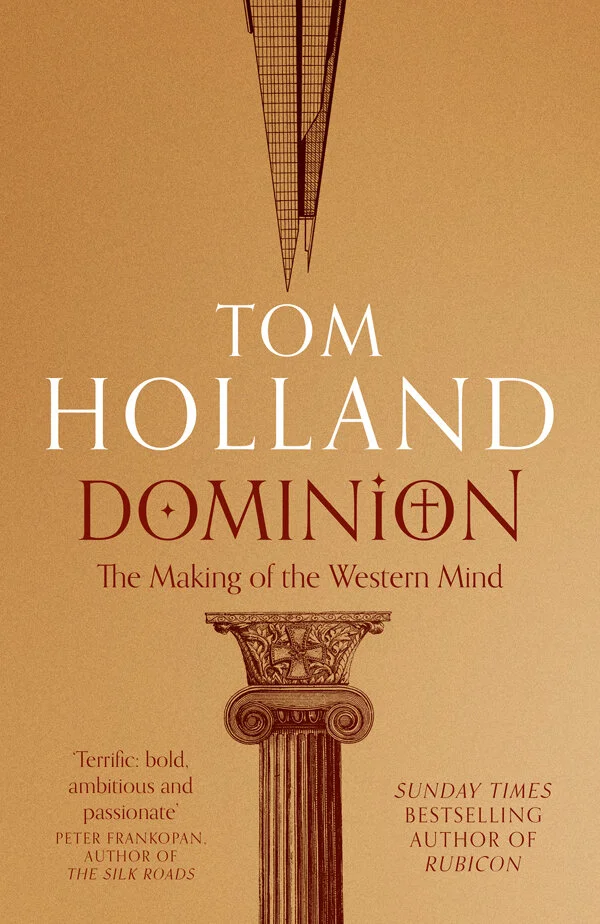I just finished reading this book on Good Friday 2021, which is somehow appropriate, given the sweep of the story. Author Tom Holland (a historian, not the Spiderman guy) has written probably one of the most fascinating history books I've ever read. (And he writes in a really engaging manner, which helps make it a good read.)
Essentially, Holland was a fan of Roman history and its influence on the world, but eventually hit on a realisation: Romans are nothing like us. In fact, it's almost terrifying how different their way of viewing the world is from the modern Western thinker. So it drove him back to a character that he'd always previously thought a bit soft and boring: Jesus.
In Dominion he sets out to chart the impact that the Christian faith had on the world. Each chapter jumps in at a different point in history - starting in the BC years with the Babylonians and Jews, and then, century by century, the story unfolds until we reach our own times. (And I do mean our own times, given the final chapter covers off on such things as the Weinstein scandal and the Trump presidency.)
Holland's thesis is potentially controversial but difficult to ignore: while the West has definitely moved into a post-Christian era, most of the core basic beliefs that we all hold true are lifted directly from the Christian faith. For example, if you happen to believe that all people are created equal and that everyone has human rights, that's not an idea that has been believed at all times by all people. Where it came from is Christianity, and as Christianity spread, that idea spread.
Now this kind of book has been done before, but what's most interesting is that Holland doesn't really have a vested interest in arguing for Christians: he's an agnostic, possibly atheist. And as such, he has no qualms with sharing the history of the religion in a warts-and-all way. Alongside the stories of great things that Christians have done, there are crusades, inquisitions and just general weirdness that is incomprehensible to us nowadays, whether we're believers or not.
Most interestingly, the one period of history that doesn't have its own chapter is actually the life of Jesus himself. Holland more or less skips from the Jews prior to Christ to the time of Paul. It's possible that he knew a chapter like that would be heavily pored-over by all sides, given that the historicity of Jesus is a massive debate question. Whatever the reason, in a funny way, it works to make the book less confronting for different sides. If you're a Christian who takes the Jesus story as truth, you are reading a history of what spiraled out from his time on earth: good, bad and just plain crazy. If you're an atheist or agnostic, you can buy the whole Jesus story as myth, and still follow the flow-on effects of this one small period of history.
The end historical result, whatever you believe, is truly what the book's subtitle says it is: The Making of the Western Mind.
By Matt

